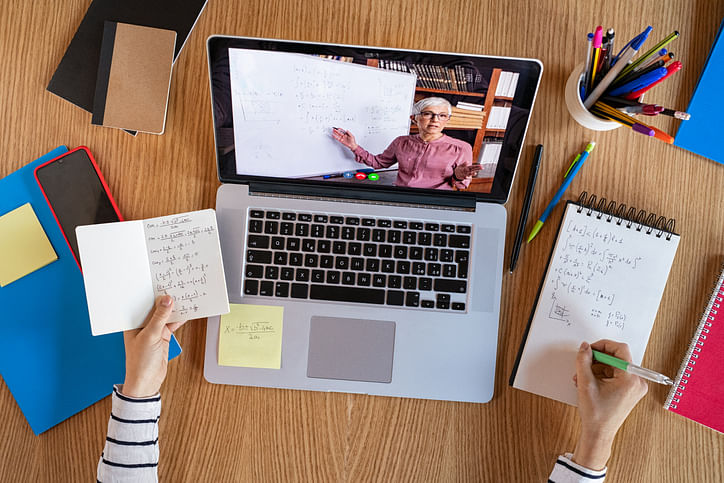
Classes on Zoom or other video conferencing platforms may be the current trend during this COVID-19 lockdown, but thousands of disabled college students are finding it hard to access classes with no laptop and internet, lack of study material in format suitable for them and absence of sign language interpreters and transcripts.
The disabled students fear that they would be in further disadvantage if the universities go ahead with the examinations soon after the national lockdown is lifted, as they could not even access organisations that could help them with extra assistance in their academics.
Follow live updates on coronavirus
At least 75,000 students with disability are estimated to be attending colleges in the country but disability activists are complaining that the government has not yet formulated a guideline for online classes and finalising examination schedule.
The Department of Empowerment of Persons With Disabilities (DEPWD) had on April 29 written to the Ministry of Human Resources Development (MHRD) to issue an "appropriate advisory" to states and academic institutions to take measures to ensure that disabled students participate equally with others in online classes. It also urged the MHRD to take into consideration their plight while finalising the examination schedule.
The DEPWD communication came after the Javed Abidi Foundation (JAF) shot off a letter highlighting that online classes are not accessible to students, especially, to those having visual, hearing and specific learning disabilities. It said majority of disabled students come from lower strata of society and may not have laptop and internet to avail online classes.
However, JAF Convenor Shameer Rishad said, the MHRD has not yet formulated the guidelines despite they submitting elaborate recommendations to it on May 5.
"The Centre had launched the Digital and Accessible India campaigns in 2015, but students want to know if these initiatives were just tokenisms, or does the government really envision them as the future of an 'Atma Nirbhar Bharat' (Self Reliant India)? How serious is the Modi administration about being inclusive in addressing the needs of people with disabilities?" Rishad said.
He said data shows that 74,435 students are enrolled in universities across the country who are now unable to access education due to the COVID-19 pandemic. "This is merely because there are no guidelines issued by the competent authority," he said.
In its letter to DEPWD it stated, online classes are troublesome for disabled students for diverse reasons, including inaccessible study material. Most of them are either in the image form and no alternative text is provided while documents are not scanned properly or at times not converted via OCR Reader.
Students with hearing disabilities face the problem because there are no sign language interpreters and unavailability of transcripts of lectures.
On the exam schedule, the letter asked, when students with disabilities do not have access to study material or many of them even do not have access to electronic devices, how will they prepare for exams?
In its recommendations to the MHRD, JAF and Diversity And Equal Opportunity Centre (DEOC) suggested that colleges should use accessible web/video conferencing platform, which uses assistive technologies like screen reader, magnifier and speech recognition software.
A sign language interpreter should be provided if there is a deaf student who is a sign language user. It should be ensured that the window for the interpreter is not small and that there is enough light on the interpreter to ensure good visibility, it said.
"Videos should have captions and audio descriptions. Transcripts should also be provided, which would help deaf and blind people," it added.
